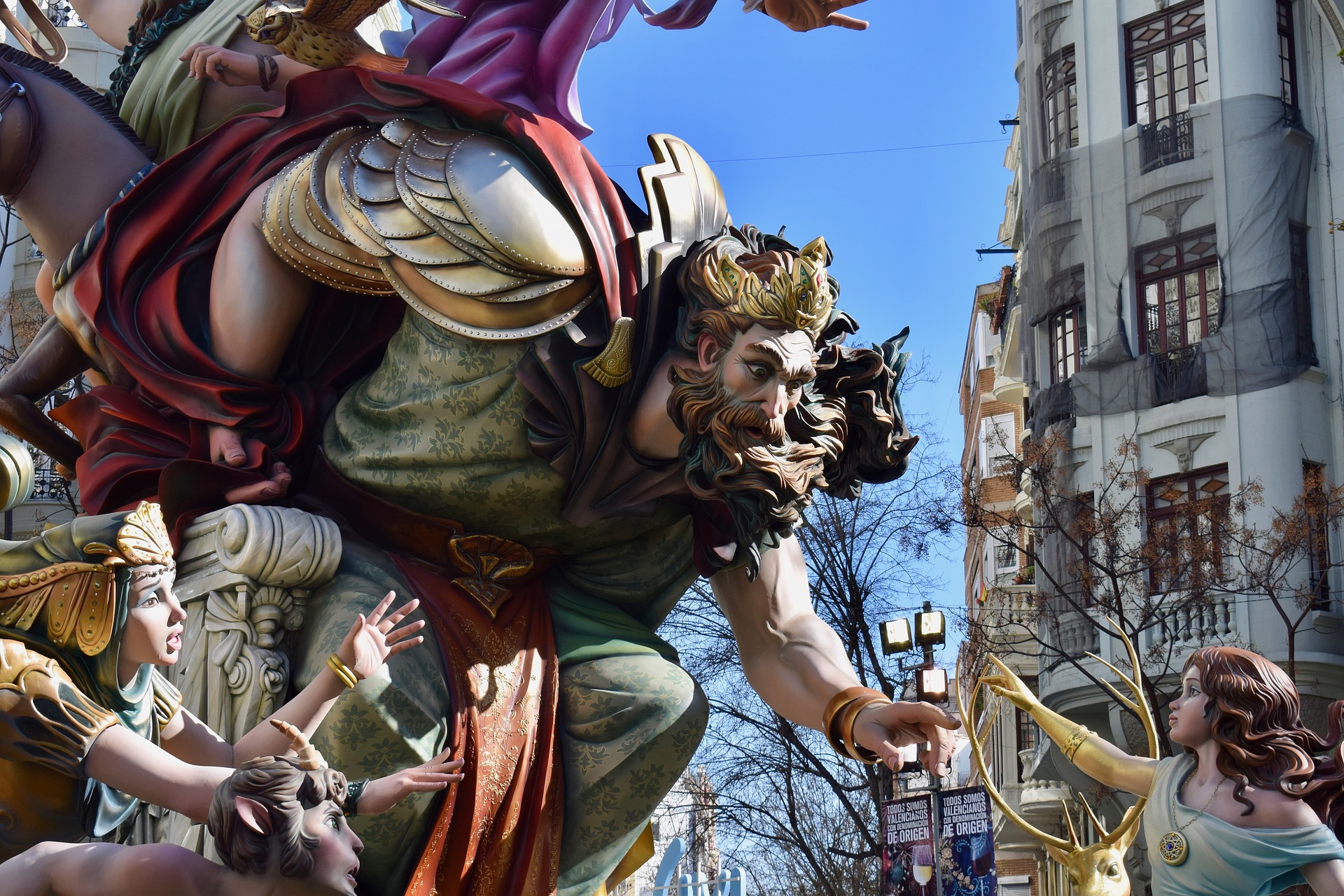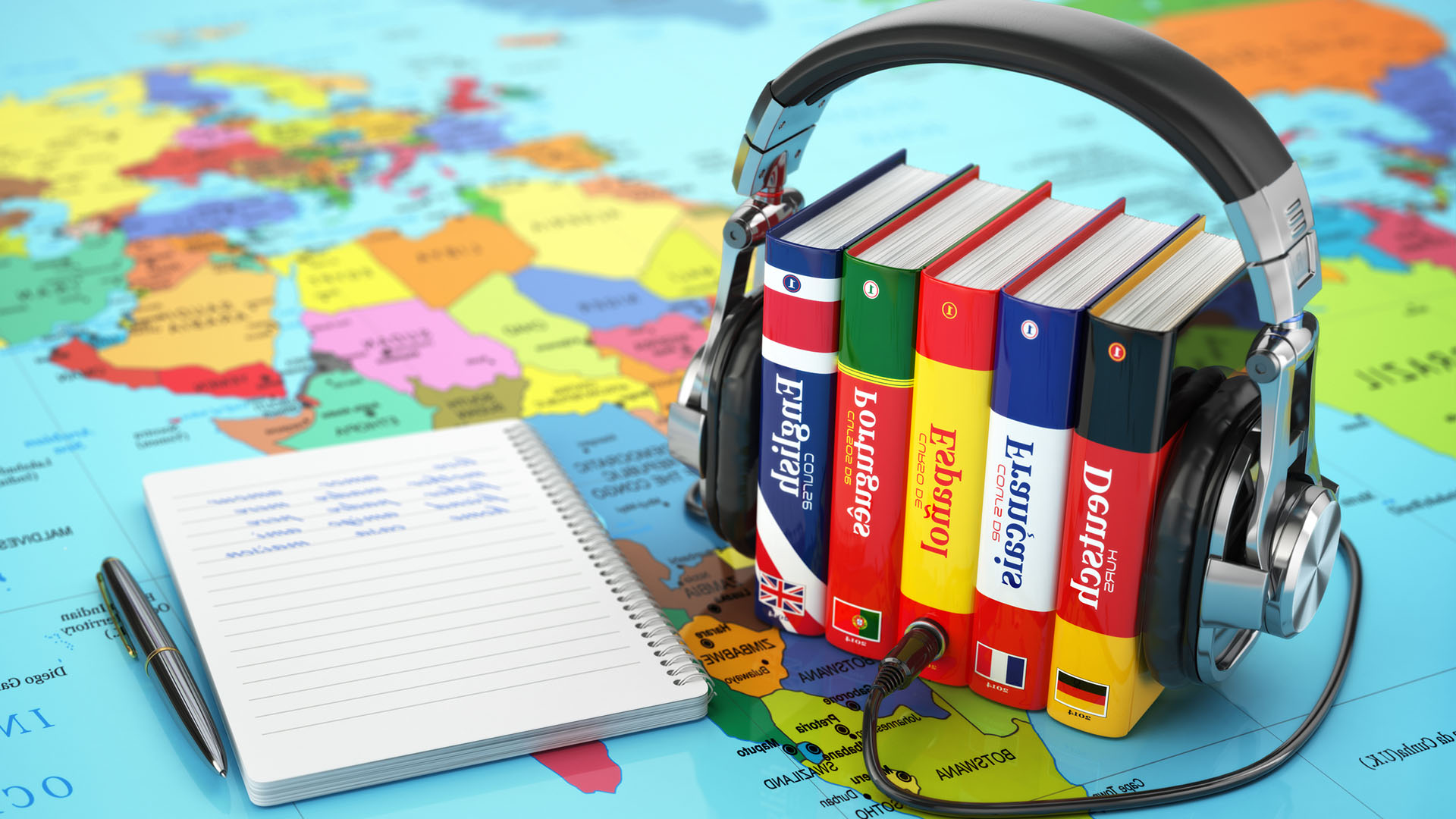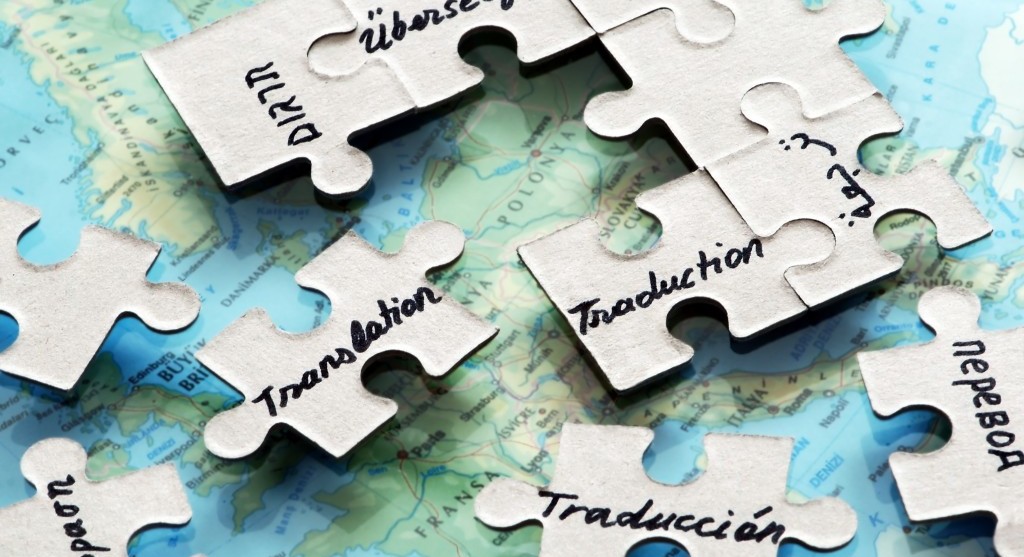This is the most wonderful time of the year, with mistletoe on the door and Christmas carols in the air. But not all countries celebrate the festive season in the same way. Discover six European Christmas traditions that you may not know about.
Category: Cultural Corner
The origin of Easter eggs
As you may know, BigTranslation is made up of people of different nationalities, of very diverse nationalities. But many of them share traditions, such as the celebration of Easter.
The Valencian Fallas: tradition, satire and art
BigTranslation’s nerve-centre is located in Valencia, a city which is open to the world and which contains many reasons for you to visit. Its festivals, culture, sport and gastronomy are just some of these.
The Fallas stands out among the festivals with its mix of art, satire and tradition.
Would you learn one of these rare languages?
There has been a surge in interest for language learning in recent years, thanks in part to wide availability of materials and language learning systems made possible by the internet. Not only that but the declining costs in international travel have made it much more realistic than ever before to get out there and immerse oneself in other cultures and languages.
The ten most spoken languages in the world
What are the ten most widely spoken languages in the world? Some of these might surprise you!
Can you learn a language in three months?
We see this claim repeated over and over again in pop-ups that appear in our browser or in YouTube, usually originating from language learning platforms or blogs. But is it true? The short answer: no. The slightly longer answer: sort of. Perhaps an explanation is required.
Which languages do you think are the most challenging?
As English speakers we are really spoilt, as pretty much the whole world is trying to learn English, and where large parts of the world have not yet fully succeeded in the endeavour, they are well on the way. So this takes the pressure off as native English speakers, which might be seen as a good thing. Unfortunately however, the all-too-common result on our part is the tendency toward extreme laziness when it comes to language learning! After all, why bother when the rest of the whole is beating a path to our door and doing all the work to make themselves understood.
Read more “Which languages do you think are the most challenging?”
Dispelling the Myths: Translation and History
As previously mentioned in our blogs, we at BigTranslation know the realities of business and commerce inside out, so we are more than aware of the important role that translation plays in international cooperation between people from all sorts of backgrounds. With this in mind, we’d like to take this opportunity to correct one of the biggest misconceptions in the history of language.
As previously mentioned in our blogs, we at BigTranslation know the realities of business and commerce inside out, so we are more than aware of the important role that translation plays in international cooperation between people from all sorts of backgrounds. With this in mind, we’d like to take this opportunity to correct one of the biggest misconceptions in the history of language.
“Ich bin ein Berliner” (“I am a Berliner”) is a quotation from a June 26, 1963, speech by U.S. President John F. Kennedy in West Berlin. Speaking in German, John F. Kennedy said “I am a citizen of Berlin.”
Pronounced at the height of the Cold War, with the intention of underlining the support of the United States for West Germany following the erection of the Berlin Wall, the speech is remembered as being one of Kennedy’s best. However, it is also the source of one of the most widely believed myths in the history of popular culture.
There is a common misconception that Kennedy made a rather comical error in pronouncing the words Ich bin ein Berliner. As the myth goes, his use of the definite article would change “I am a citizen of Berlin” to “I am a Berliner” (a Berliner being a type of German pastry, similar to a jelly doughnut). However, scholars of German will know that the indefinite article is omitted in German when speaking of an individual’s profession or residence, but still used when speaking in a figurative sense. Since the President was not literally from Berlin but declaring his solidarity with its citizens, “Ich bin ein Berliner” was the only way to express what he wanted to say.
Unfortunately, this still hasn’t deterred everyone from Len Deighton to Eddie Izzard using the misconception surrounding the phrase for comic effect, nor did it prevent JFK’s political opponents from repeating it to have a cheap laugh at the Bostonian President’s supposed linguistic ineptitude. On one hand, the extent to which this misconception has managed to manifest itself in popular culture is quite remarkable. However, the idea that translation may be used as a political football is less uncommon than one might think.
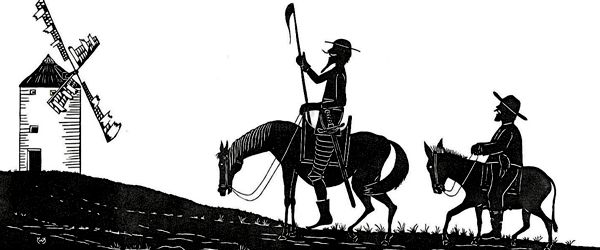
In Catalonia last year, the Institute Nova Història made the rather surprising claim that, for centuries, Spanish leaders have used translation to downplay the role of Catalonia in the country’s history. They even went so far as to claim that Miguel de Cervantes’ famous Don Quixote – widely considered to be the first modern novel – was in fact written in Catalan by Cervantes and subsequently translated into Spanish. It is argued that several linguistic errors in the text point to the possibility that Don Quixote was translated into Castilian from Catalan.
For a translator to provide an accurate, unprejudiced view of the characters and events which shape history, he or she must have an in depth knowledge of the social and political issues surrounding the source language and the people who speak it. If the whole story of Ich bin ein Berliner tells us anything, it’s that translators of the past haven’t always lead by example in this sense. And if the initial translations of Saddam Hussein’s last book (ranging from ‘Devil’s Dance’, ‘Begone Devils’ to ‘Get Out, You Damned One’) are anything to go by, it’s clear that the translators of today have got still got their work cut out for them.
Fantasy Literature: Lost in Translation?
If one thing is for sure, it’s that translation is all about making choices and striking a balance. Translators are constantly deciding which elements of a text to preserve and which ones to sacrifice. They read the source text, only about a million times, to gauge the overall meaning as accurately as possible in order to convey this in their target text. Constantly faced with the knowledge that they must aim to stay as faithful as possible to the original, they are also fully aware that a literal translation seldom makes a good translation.
“Poetry is what gets lost in translation” – Robert Frost
If one thing is for sure, it’s that translation is all about making choices. Translators are constantly deciding which elements of a text to preserve and which ones to sacrifice. They read the source text so many times that they could recite it off by heart, just to gauge the overall meaning as accurately as possible in order to convey this in their target text. Constantly faced with the knowledge that they must aim to stay as faithful as possible to the original, they are also fully aware that a literal translation seldom makes a good translation. Making these decisions can be particularly challenging for literary translators, and not just any old ones; translators of fantasy literature and children’s literature are at the top of the list where creativity is concerned. You may ask yourself why this is. One of the main characteristics which defines fantasy literature is using one culture as the foundation on which to build an entirely new imaginary world, therefore culture-specific references are abundant in this genre. When translating these to another language and creating ways to induce the same feeling in the target culture as the source culture, there is always bound to be some loss of meaning. Despite this inevitable loss, creativity is still key when translating in order to retain as much of the ambience of the original text as possible.
Invented proper names, poetic language, culture-specific concepts and character idiolect are examples which show us that loss of meaning is sometimes unavoidable when translating fantasy texts. Let us take as an example the English name ‘Shire’ in Tolkien’s trilogy The Lord of the Rings, translated into Spanish as ‘Comarca’, meaning a division of land or traditional region. Although the denotation of the word Shire is a county, the English connotations of the word are of a rural division of land in a pre-industrial, agricultural age. To an English reader this would be typified by the ‘Shire horse’ and the green areas away from the industrialised towns, echoing Tolkien’s dismay at the destruction of rural England. Therefore, although the translator has been able to translate ‘Shire’ in a literal sense, the effect of associating these invented places with rural parts of England is inevitably lost.
Although the original The Lord of the Rings was written mostly in the Standard English of that time period (1954), Tolkien intentionally used grammatically incorrect words such as ‘drownded’ in order to emphasise the quirkiness of each hobbit’s character and to show that they are simple, uneducated folk. This is a problem for the translator when working into Spanish, as they cannot simply change the standard word for ‘drown’ (ahogarse in Spanish), because this would result in the target audience’s misinterpretation that the translator had merely made a grammatical mistake. The translator’s only option is to maintain the standard form of language in the target text in order to make sense to readers. This leads to an inability to render the idiolect of certain characters from the original text and consequently a failure to portray them as the author created them.
In Lewis Carroll’s Alice in 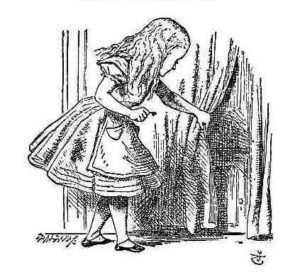 Wonderland, the mad tea party scene with its puns, parodied verses, nonsense and linguistic jokes, is a particularly good test of a translator’s skills. “You have to be really creative in order to translate Alice in Wonderland well.” says Emer O’Sullivan, an expert on children’s literature in translation at Leuphana University in Germany. The cultural references in the Victorian novel pose a variety of problems for translators. For example, British contemporaries would have guessed that the Hatter was mad from mercury exposure, but hat makers in other parts of the world didn’t use mercury. Similarly, in J.K. Rowling’s Harry Potter books, the variety of the characters is reflected in a wide range of registers and idiolects which are based on British culture. The text is rich in word play, irony and British humour which acts as a backdrop to the magical theme of the story. It is no surprise then that when translated to other languages it does not have exactly the same effect on the target culture as on the British audience. Loss of meaning occurs not because of any fault on behalf of the translator, but simply due to the idiosyncratic nature of each language and culture at hand, which perhaps is what makes original works of fantasy literature so unique.
Wonderland, the mad tea party scene with its puns, parodied verses, nonsense and linguistic jokes, is a particularly good test of a translator’s skills. “You have to be really creative in order to translate Alice in Wonderland well.” says Emer O’Sullivan, an expert on children’s literature in translation at Leuphana University in Germany. The cultural references in the Victorian novel pose a variety of problems for translators. For example, British contemporaries would have guessed that the Hatter was mad from mercury exposure, but hat makers in other parts of the world didn’t use mercury. Similarly, in J.K. Rowling’s Harry Potter books, the variety of the characters is reflected in a wide range of registers and idiolects which are based on British culture. The text is rich in word play, irony and British humour which acts as a backdrop to the magical theme of the story. It is no surprise then that when translated to other languages it does not have exactly the same effect on the target culture as on the British audience. Loss of meaning occurs not because of any fault on behalf of the translator, but simply due to the idiosyncratic nature of each language and culture at hand, which perhaps is what makes original works of fantasy literature so unique.
Literary translation is becoming more and more popular as a service offered by translation companies across the world. Global events and cultural changes in Britain are drawing readers towards foreign literature, while social media sites are playing a part in spreading the word about successful international books. At BigTranslation we are always open to new ideas in terms of the services we offer, as we host a diverse team of native in-house translators specialising in different translation fields.
Learning Languages Post-Brexit
Studying or speaking a foreign language is a humbling experience, forcing the speaker to listen and adapt their perspective, chipping away at those philosophical or political certainties that can be limiting, removing barriers and nurturing curiosity. Moreover, in our globalized world, it is a more essential skill than ever, not just for economic success but all trade and negotiation.
On Thursday 23rd June, a nationwide referendum was held in Britain in which 51.9 percent of the voters said that they were in favor of Brexit. The United Kingdom still needs to formally notify the European Union of its intention to leave. After that, it has two years to negotiate the terms of its divorce. However, the after-effects of this political change are already beginning to take their toll on various businesses and educational sectors within the UK.
Many translators in Britain are now wondering how Brexit will affect their businesses, while many EU citizens living in the UK (and UK citizens living in the EU) are wondering how it will affect their terms of residence. One thing we can be certain of is that post-Brexit, the UK will become more isolated; not just as a sovereign state, but also in the sense that the English language will no longer hold such an important status as Europe’s lingua franca. No other EU country except Malta and Ireland has English as their official language, therefore it is likely that English will gradually lose its status now that the UK is no longer a member of the European Union.
From the point of view of translators and those currently learning languages in education, the Brexit vote means they face the possibility of their language careers being put into jeopardy. This is down to the fact that English will no longer be so much of an in-demand language for European businesses and organisations. At the same time, this also means that there is more of an urgency for people in Britain to learn European languages to help maintain intercultural relations between the UK and the rest of Europe. Although English is considered the universal language of business, there have been calls in France to put an end to the dominance of English as the EU’s working language. Now more than ever, it is the study of language and culture that can combat stereotypes and foster the communicative skill and cross-cultural understanding needed to ensure peaceful and prosperous relations between European states.
Studying or speaking a for eign language is a humbling experience, forcing the speaker to listen and adapt their perspective, chipping away at those philosophical or political certainties that can be limiting, removing barriers and nurturing curiosity. Moreover, in our globalized world, it is a more essential skill than ever, not just for economic success but for all trade and negotiation. Translation companies across Europe such as BigTranslation fully understand the benefits of having many translators with English as their working language. Depending on the impact that Brexit has on the status of English within the EU, their priorities may have to change, whether this means taking on a greater or lesser amount of English translators in order to adapt to the changing world of business.
eign language is a humbling experience, forcing the speaker to listen and adapt their perspective, chipping away at those philosophical or political certainties that can be limiting, removing barriers and nurturing curiosity. Moreover, in our globalized world, it is a more essential skill than ever, not just for economic success but for all trade and negotiation. Translation companies across Europe such as BigTranslation fully understand the benefits of having many translators with English as their working language. Depending on the impact that Brexit has on the status of English within the EU, their priorities may have to change, whether this means taking on a greater or lesser amount of English translators in order to adapt to the changing world of business.



